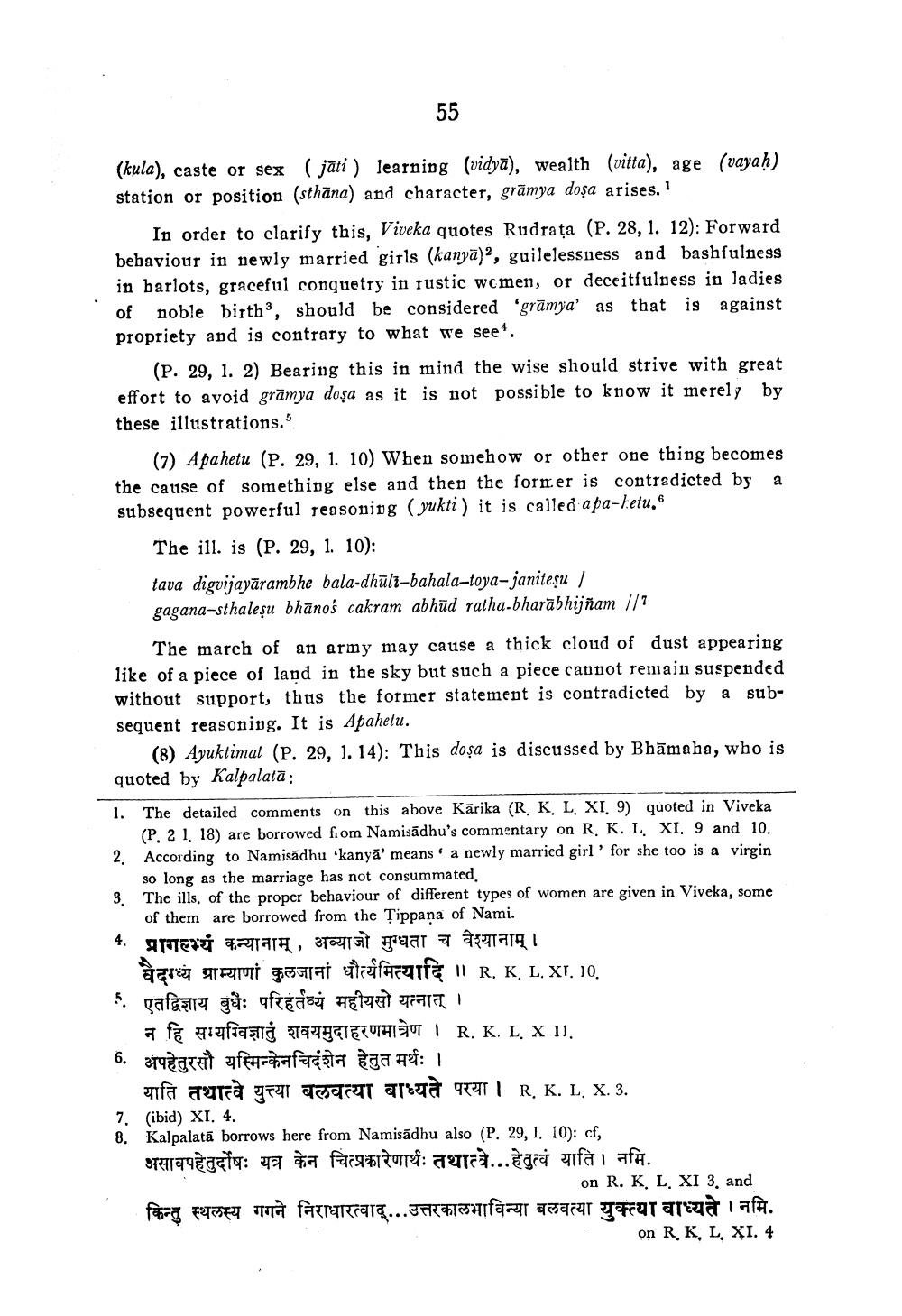________________ 55 (kula), caste or sex (jati ) learning (vidya), wealth (vitta), age (vayah) station or position (sthana) and character, gramya dosa arises." In order to clarify this, Viveka quotes Rudrata (P. 28, 1. 12): Forward behaviour in newly married girls (kanya)?, guilelessness and bashfulness in barlots, graceful conquetry in rustic women, or deceitfulness in ladies of noble birth", should be considered 'gramya' as that is against propriety and is contrary to what we see. (P. 29, 1. 2) Bearing this in mind the wise should strive with great effort to avoid gramya dosa as it is not possible to know it merely by these illustrations. (7) Apahetu (P. 29, 1. 10) When somehow or other one thing becomes the cause of something else and then the former is contradicted by a subsequent powerful seasoning (yukti) it is called apa-ketu. The ill. is (P. 29, 1. 10): tava digvijayarambhe bala-dhuli-bahala-toya- janitesu / gagana-sthalesu bhanos cakram abhud ratha-bharabhijnam //? The march of an army may cause a thick cloud of dust appearing like of a piece of land in the sky but such a piece cannot remain suspended without support, thus the former statement is contradicted by a subsequent reasoning. It is Apahetu. (8) Ayuktimat (P. 29, 1. 14): This dosa is discussed by Bhamaha, who is quoted by Kalpalata; 1. The detailed comments on this above Karika (R. K L XI. 9) quoted in Viveka (P. 2 1. 18) are borrowed from Namisadhu's commentary on R K L XI, 9 and 10. According to Namisadhu 'kanya' means a newly married girl' for she too is a virgin so long as the marriage has not consummated, The ills, of the proper behaviour of different types of women are given in Viveka, some of them are borrowed from the Tippana of Nami. प्रागल्भ्यं कन्यानाम् , अव्याजो मुग्धता च वेश्यानाम् / are RAMI BALAI fathe | R. K. L. XI. 10. 5. एतद्विज्ञाय बुधैः परिहर्तव्यं महीयसो यत्नात् / afe gialiaj 197YCIETTANT | R. K. L. XII. 6. Egtat affalarga ega : 1 afa geta gran quart artga qar R. K. L. X. 3. 7. (ibid) XI. 4. 8. Kalpalata borrows here from Namisadhu also (P. 29, 1. 10): cf, असावपहेतुर्दोषः यत्र केन चित्प्रकारेणार्थः तथात्वे...हेतत्वं याति। नमि. on R. KL. XI 3. and किन्तु स्थलस्य गगने निराधारत्वाद्...उत्तरकालभाविन्या बलवत्या युक्त्या बाध्यते / नमि. on R. K, L, XI. 4




